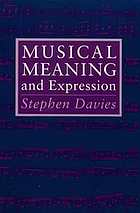Music has been part of hu
Music allows for unique expressions of social ties and the strengthening of relational connectedness. In fact, music is said to be the universal human language. This has been asserted by poets and musicians, evolutionary biologists and cultural anthropologists, historians and archaeologists, psychologists and sociologists. Recently, a team from Harvard published the most comprehensive study to date supporting the idea of the universality of music and what features of song tend to be shared across societies.
 Music is also essential to human well-being. It can reduce the heart rate, lower blood pressure, and decrease cortisol levels. It can assist in pain management and reduce the perceived intensity of pain. It can relieve the symptoms of depression and anxiety and decrease stress. It can help people eat less and also help boost physical performance and increase workout endurance. It aids memory, not just in helping retrieve stored memories, but also in establishing new ones. Music facilitates human connections, meaning, and imagination.
Music is also essential to human well-being. It can reduce the heart rate, lower blood pressure, and decrease cortisol levels. It can assist in pain management and reduce the perceived intensity of pain. It can relieve the symptoms of depression and anxiety and decrease stress. It can help people eat less and also help boost physical performance and increase workout endurance. It aids memory, not just in helping retrieve stored memories, but also in establishing new ones. Music facilitates human connections, meaning, and imagination.
To learn more about the history, forms, and benefits of music, check out our book display on the Library’s 3rd floor.
